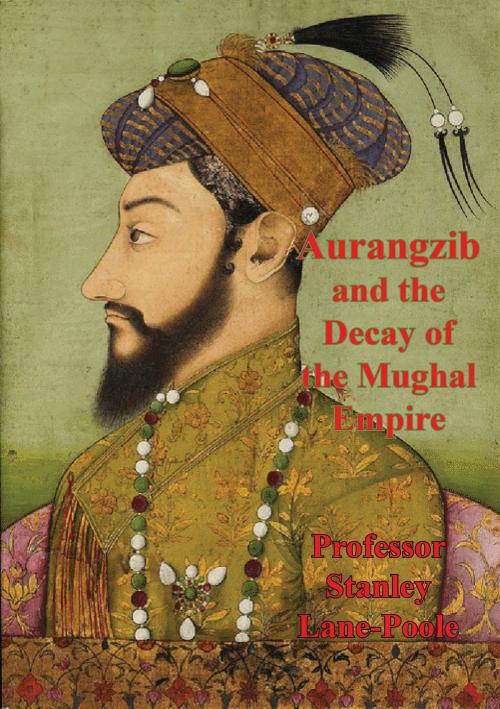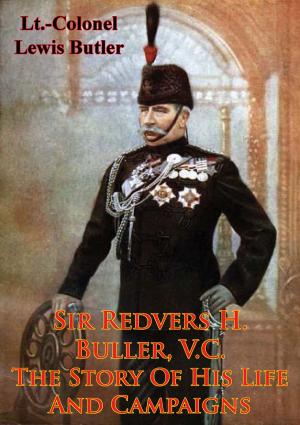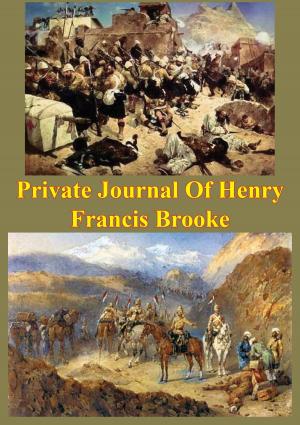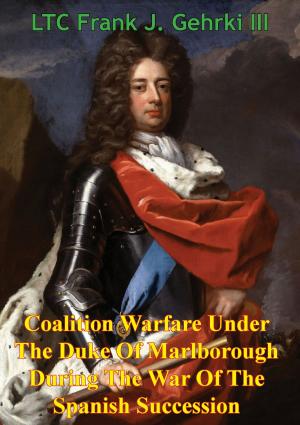Aurangzib And The Decay Of The Mughal Empire
Nonfiction, History, Asian, India, Religion & Spirituality, Eastern Religions, Hinduism, Health & Well Being, Fitness, Yoga| Author: | Professor Stanley Lane-Poole | ISBN: | 9781782894735 |
| Publisher: | Normanby Press | Publication: | August 15, 2014 |
| Imprint: | Normanby Press | Language: | English |
| Author: | Professor Stanley Lane-Poole |
| ISBN: | 9781782894735 |
| Publisher: | Normanby Press |
| Publication: | August 15, 2014 |
| Imprint: | Normanby Press |
| Language: | English |
This is the tale of the last of the great Mughal Emperors of India, Aurangzib or the “world-seizer”, his life is traced by expert historian Professor Lane-Poole though the blood, battles and intrigue of his vast wars, rapid expansion, religious piety and fatal over-extension.
“The greatest of Indian rulers, the Emperor Akbar, died in 1605. Third in the succession of his dynasty, he was first in his genius for government the true founder of the Indian Empire of the Great Moguls. He left a magnificent heritage to his descendants. His realm embraced all the provinces of Hindustan, and included Kabul on the west, Bengal on the east, Kashmir beside the Himalayas, and Khandesh in the Deccan. He had not merely conquered this vast dominion in forty years of warfare, but he had gone far towards welding it into an organic whole. He united under one firm government Hindus and Muhammadans, Shi’a and Sunnis, Rajputs and Afghans, and all the numerous races and tribes of Hindustan, in spite of the centrifugal tendencies of castes and creeds. In dealing with the formidable difficulties presented by the government of a peculiarly heterogeneous empire, he stands absolutely supreme among oriental sovereigns, and may even challenge comparison with the greatest of European kings. He was himself the spring and fount of the sagacious policy of his government, and the proof of the soundness of his system is the duration of his undiminished empire, in spite of the follies and vices of his successors, until it was undone by the puritan reaction of his great-grandson Aurangzib.”
“Akbar’s main difficulties lay in diversity and jealousies of the races and religions with which he had to deal. It was his method of dealing with these difficulties which established the Mughal Empire in all the power and splendour that marked its sway for a hundred years to come. It was Aurangzib’s reversal of this method which undid his ancestor’s work and prepared the way for the downfall of his dynasty.”
This is the tale of the last of the great Mughal Emperors of India, Aurangzib or the “world-seizer”, his life is traced by expert historian Professor Lane-Poole though the blood, battles and intrigue of his vast wars, rapid expansion, religious piety and fatal over-extension.
“The greatest of Indian rulers, the Emperor Akbar, died in 1605. Third in the succession of his dynasty, he was first in his genius for government the true founder of the Indian Empire of the Great Moguls. He left a magnificent heritage to his descendants. His realm embraced all the provinces of Hindustan, and included Kabul on the west, Bengal on the east, Kashmir beside the Himalayas, and Khandesh in the Deccan. He had not merely conquered this vast dominion in forty years of warfare, but he had gone far towards welding it into an organic whole. He united under one firm government Hindus and Muhammadans, Shi’a and Sunnis, Rajputs and Afghans, and all the numerous races and tribes of Hindustan, in spite of the centrifugal tendencies of castes and creeds. In dealing with the formidable difficulties presented by the government of a peculiarly heterogeneous empire, he stands absolutely supreme among oriental sovereigns, and may even challenge comparison with the greatest of European kings. He was himself the spring and fount of the sagacious policy of his government, and the proof of the soundness of his system is the duration of his undiminished empire, in spite of the follies and vices of his successors, until it was undone by the puritan reaction of his great-grandson Aurangzib.”
“Akbar’s main difficulties lay in diversity and jealousies of the races and religions with which he had to deal. It was his method of dealing with these difficulties which established the Mughal Empire in all the power and splendour that marked its sway for a hundred years to come. It was Aurangzib’s reversal of this method which undid his ancestor’s work and prepared the way for the downfall of his dynasty.”


![Cover of the book Over The Seawall: U.S. Marines At Inchon [Illustrated Edition] by Professor Stanley Lane-Poole](https://www.kuoky.com/images/2015/november/300x300/9781786256096-YZ1r_300x.jpg)
![Cover of the book The Invasion of the Crimea: Vol. IX [Sixth Edition] by Professor Stanley Lane-Poole](https://www.kuoky.com/images/2017/january/300x300/9781787203464-j287_300x.jpg)
![Cover of the book MIG Alley: The Fight For Air Superiority [Illustrated Edition] by Professor Stanley Lane-Poole](https://www.kuoky.com/images/2014/august/300x300/9781782896593-WGqd_300x.jpg)










![Cover of the book Letters Written During The Indian Mutiny [Illustrated Edition] by Professor Stanley Lane-Poole](https://www.kuoky.com/images/2016/january/300x300/9781786257970-ysLN_300x.jpg)